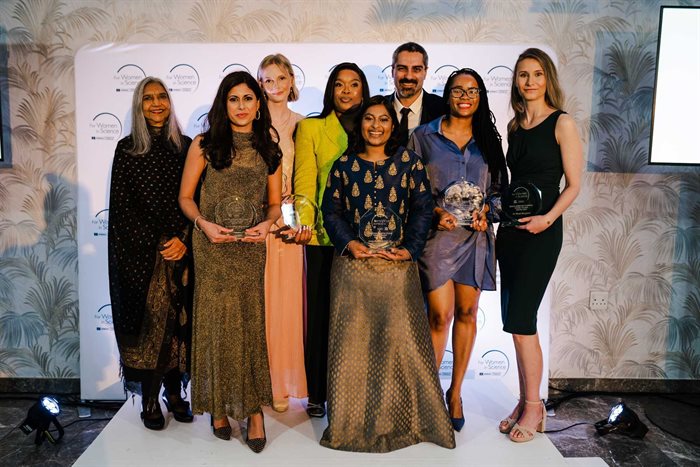This year's L'Oréal-Unesco For Women in Science National Awards winners were announced during a ceremony held in Johannesburg earlier this month. Each of the six South African women scientists will receive a grant in support of their PhD or postdoctoral studies.

2022 L'Oréal-Unesco For Women in Science National Awards winners. Source: Supplied
The L’Oreal Foundation and Unesco have worked together for more than 20 years to help empower more women scientists to achieve scientific excellence and participate equally in solving the great challenges facing humanity. To date, they have awarded more than 100 laureates, five of whom have gone on to win Nobel Prizes.
L'Oréal South Africa country manager, Serge Sacre, says women scientists are leading groundbreaking research across the world, but despite their remarkable discoveries, they only represent 33.3% of researchers globally*, and their work rarely gains the recognition it deserves. “Less than 4% of Nobel Prizes for science have been awarded to women and they hold disproportionately few senior positions in science, worldwide.”
'World needs science and science needs women'
The L’Oréal-Unesco For Women in Science international programme functions at multiple levels to reach women at all stages of their scientific careers and support them in overcoming the obstacles that too often prevent women from reaching the heights they are capable of achieving.
Sacre says the programme is underpinned by the understanding that the world needs science and science needs women. “Women have a vital role to play in science, which is why this programme is so significant. It encourages the vocations of girls in high school, supports women in research, and recognises excellence in a field where women are underrepresented.”
This year’s grant recipients are:
- Dr Thilona Arumugam, Decoding the role of DNA methylation in HIV pathogenesis.
- Dr René Booysen, Innovative remote sensing for the exploration of critical raw materials.
- Boitumelo Mabakachaba, Investigation and development of 1-dimension VO2 nano-sensor which exhibits high detection capabilities for hydrogen gas at ambient temperature.
- Dr Farzahna Mohamed, Glucose and lipid metabolism in severe acute respiratory distress syndrome (SARS-CoV-2).
- Dr Asanda Mtintsilana, Delineating the role of social vulnerability in the pathophysiology of non-communicable diseases (NCDs) and their prominent risk factors in middle-aged Black South African women.
- Jessica Thibaud, Targeting Plasmodium falciparum cGMP- dependent Protein Kinase: machine learning and medicinal chemistry approaches.
*Unesco Science Report: towards 2030 (2021)
















































